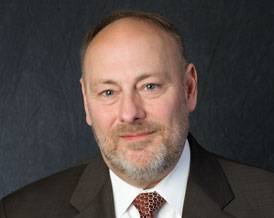
Of Counsel: When the News Reporter Calls
Blog Search
This column appeared in the July 2012 issue of Lambda Legal's newsletter Of Counsel.
Four years ago, a young man who worked for a neighboring Texas county government was fired because one of the county commissioners learned he is a gay man. As frequently happens, reporters from various news media outlets called me for a comment on the firing. Without exception, at some point in the conversations, each one made the comment that they knew there were no employment protections for discrimination against lesbians and gay men in Texas. And each time, I corrected them by saying, “That’s not true. Why do you say that?”
Since that time I have looked for a case that can serve to educate the community about an important point of employment law that frequently goes unnoticed: Public employers (federal and state governments, counties and cities, public schools and hospitals) do not get to play by the same rules as private employers. The U.S. Constitution holds them to a higher standard when it comes to treating their employees fairly.
In late 2010, Jackie Gill contacted Lambda Legal’s Help Desk. Jackie Gill had realized her lifelong ambition to teach college. The prior year she had been hired as a full-time professor at Tarrant County College in Hurst, Texas. Even though the position was not permanent, her division dean, who appeared eager to hire her, explained that it was customary for full-time instructors to be hired on a temporary basis first. Although her year went well and her feedback was uniformly positive, at one point her boss met with her and told her that Texas and the institution where she taught were very conservative and “didn’t like homosexuals.” Later, her department chair’s secretary informed Jackie that she would not be granted an interview for any of the permanent positions that had opened up.
In September 2011, Lambda Legal, joined by pro bono co-counsel Benjamin D. Williams from Gibson, Dunn & Crutcher, filed a lawsuit in the U.S. District Court for the Northern District of Texas on behalf of Jackie, alleging that Tarrant County College’s treatment of her violated the equality guarantee of the Fourteenth Amendment to the U.S. Constitution. Jackie and Lambda Legal brought this suit with two goals in mind: First and foremost, we wanted to right a wrong done to a good and dedicated employee whose lifelong dream was to be an educator. Second, we sought to obtain a federal court ruling that would put public employers on notice that clearly established law forbids discriminating against employees based on sexual orientation because it serves no legitimate governmental purpose and can subject the employer to liability.
As expected, attorneys on behalf of the college officials asserted that as public officials performing discretionary functions, they could not be sued for damages because their conduct did not violate any clearly established constitutional rights of which a reasonable person would have known (a legal concept known as “qualified immunity”). In a published decision, the Court rejected the immunity claim, noting that if Gill’s allegations of discrimination based on sexual orientation were proven, they could be a violation of the Constitution’s Equal Protection Clause.
The Court went on to discuss two of Lambda Legal’s landmark Supreme Court cases, Lawrence v. Texas (striking down sodomy criminalization statutes because they violate the due-process rights of consenting gay adults) and Romer v. Evans (holding a state constitutional amendment prohibiting civil rights for lesbians and gay men violated the Equal Protection Clause), then observed that federal courts have consistently concluded since then that “the unconstitutionality of sexual-orientation discrimination lacking a rational relationship to a legitimate governmental aim was clearly established” at the time Gill was not permitted to interview for a permanent position.
After the Court’s ruling and before the parties began discovery, the case was settled before a mediator. Jackie Gill received a six-figure settlement and a positive letter of recommendation from her department chair. And although the college denies any liability, Judge Means’s decision stands as a caution to public employers across Texas that the Constitution holds them to a different standard than private employers: Lesbian and gay employees cannot be singled out for adverse treatment because of their sexual orientation.




